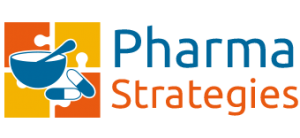- First-in-class, oral, targeted factor B inhibitor iptacopan substantially reduced both intra- and extravascular hemolysis when given as monotherapy in a Phase II study of anti-C5 naïve paroxysmal nocturnal hemoglobinuria (PNH) patients1
- New results are promising for potential use of iptacopan as monotherapy in PNH, a rare and life-threatening blood disorder2,3; results from a previous Phase II study showed iptacopan substantially improved hematological response as add-on to standard-of-care (eculizumab …
Novartis today announced that Entresto® (sacubitril/valsartan) has received a new indication in China for the treatment of patients with essential hypertension, a disease affecting approximately 245 million adults in the country1. This National Medical Products Administration (NMPA) decision follows the 2017 approval of Entresto for the treatment of heart failure with reduced ejection fraction (HFrEF).
- The prevalence of hypertension in China is expected to rise to approximately 300 million2 by 2025 with control rates generally lower than in other parts of …
- Data shows investigational iptacopan improved estimated glomerular filtration rate (eGFR) slope and stabilized kidney function in patients with C3G1; Phase III clinical trial to start in 2021
- Results add to body of information on iptacopan, with previous interim analysis data from same trial showing significant reduction in proteinuria, improved plasma C3 levels, and favorable safety and tolerability profile over 12 weeks2
- There …
- Phase II primary endpoint results for investigational iptacopan in IgAN demonstrated effective and clinically meaningful reduction of proteinuria1 – a key risk predictor in kidney disease progression2
- Iptacopan also showed a trend toward stabilization of kidney function1; …
- Tabrecta® (capmatinib) showed a median overall survival (OS) of 20.8 months in treatment-naïve patients and 13.6 months in previously-treated patients in first published mature data1,2
- Tabrecta achieved 65.6% overall response rate (ORR) in first-line and 51.6% in second-line settings in new expansion cohort analysis of additional patients1,2
- Patient-reported outcomes on quality-of-life symptoms were also presented …
- Tislelizumab demonstrated a 30% reduction in the risk of death and extended median overall survival by 2.3 months compared to chemotherapy in advanced or metastatic esophageal squamous cell carcinoma after prior systemic therapy1
- Additional Phase II data presented at ASCO showed tislelizumab demonstrated durable anti-tumor activity in patients with microsatellite instability-high, or mismatch-repair-deficient, solid tumors2
Basel, June 4, 2021 — Novartis announced today results from …
- At final analysis, study showed clinically relevant improvement in median overall survival with a difference of 11.7 months between arms (Hazard ratio (HR): 0.84 with 95% CI: (0.60, 1.17) (p=0.30, two-sided))1
- No new safety signals emerged in long-term follow-up with median of 6.3 years; safety profile consistent with previously reported results1
- Previously reported primary analysis demonstrated statistically significant improvement in …
- Men who received 177Lu-PSMA-617 plus best standard of care had a 38% reduction in risk of death (median OS benefit of 4 months) and a 60% reduction in the risk of radiographic disease progression or death (median rPFS benefit of 5 months) compared to best standard of care alone1
- Significant improvement demonstrated in all key secondary endpoints, including time to first symptomatic skeletal event, overall response rate and disease control rate1
- …
- Primary analysis of ELARA trial demonstrated a 66% complete response rate and 86% overall response rate with one-time Kymriah infusion1
- Robust response observed in heavily pretreated patients in critical need of a potentially definitive treatment option1,2
- No patients in ELARA trial experienced grade 3/4 cytokine release syndrome, the most common side effect associated with CAR-T therapy1
- Global regulatory …
- MONALEESA-3 median overall survival (OS) results of 53.7 months underscore that Kisqali offers more life to postmenopausal women with HR+/HER2- metastatic breast cancer (MBC) in addition to the OS benefit demonstrated for premenopausal women as shown in MONALEESA-71,2
- The relative risk reduction of death by 36% in the MONALEESA-3 first-line (1L) postmenopausal population highlights that Kisqali is the only CDK4/6i with proven OS for 1L in combination with fulvestrant1 …
Follow us on Facebook
ADDRESS – ZIMBABWE
Suite 204, Block 1
Long Cheng Plaza
Mutley Bend, Belvedere
Harare, Zimbabwe
ADDRESS – ZAMBIA
Plot 43504
Apex Chalala
Off Kasama Road
Lusaka Zambia
